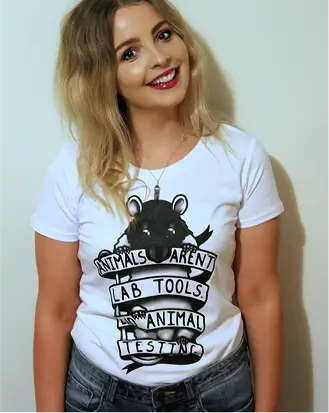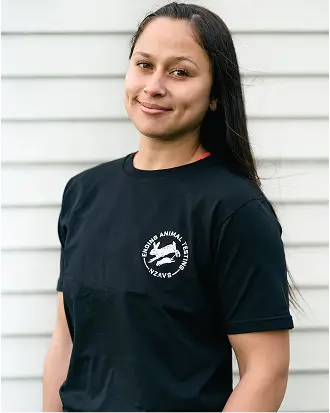Funding Animal-Free Research
The international scientific community is beginning to treat the replacement of animals used in science seriously, and the field is gaining traction rapidly.
The global non-animal alternatives Testing Market is growing at an estimated 10% per year and is forecast to reach 2.59 billion USD (over 4 billion NZD) by 2026.1
With a projected annual growth rate of 36.54%, the organ-on-a-chip market can reach close to 770 million US-dollars (over 1 billion NZD) in global revenue by 2030.2
Many countries are investing in replacing and reducing animal use for science and, in some cases, rehoming these animals.
Examples include:
- The New South Wales Government of Australia launched a 7 million AUD (~ 7.4 NZD) fund targeting animals used in science. Of this, 4.5 million AUD will be directed towards replacing and reducing the use of animals in science, while the remaining 2.5 million AUD will go towards existing animals needing to be rehomed.3
- The European Union spends over 40 million Euros (~ 69 million NZD) annually on replacement research.4
- In the United States, specific institutions play a role. The Johns Hopkins University’s Center for Alternatives to Animal Testing has to date invested over 6 million USD (~ 10 million NZD) in over 300 replacement grants. In the 2022/23 period, they have so far awarded two grants, both relating to organ-on-a-chip technology.5
- The Swiss National Science Foundation is funding a 3Rs National Research Programme called “Advancing 3R – Animals, Research and Society” (NRP 79). It aims to promote innovative ideas and constructive approaches for solving problems regarding animal experiments and their legitimacy. Through the National Science Foundation, the Swiss government is funding the programme with 20 million CHF (~35 million NZD).6
More and more countries are investing in a reference centre, a national network or a committee set up to promote and advance the replacement of animals in research.
Examples include:
The European Union has several hubs of research and information around the replacement of animal experimentation:
- The European Centre for the Validation of Alternative Methods (ECVAM) is part of the Joint Research Centre (JRC), the science and knowledge service of the European Commission.7
- The European Partnership for Alternative Approaches to Animal Testing (EPAA) is an international committee consisting of five Directorates-General of the European Commission, 38 companies, and eight European industry federations. EPAA is pooling knowledge and resources to accelerate the development, validation and acceptance of alternative approaches at national, European and global levels.8
- On the European Consensus-Platform for Alternatives (ECOPA), information on methods, legislation, and other useful links are stored.9
In the UK, the Fund for the Replacement of Animals in Medical Experiments (FRAME) is the oldest centre for excellence in alternative research. It funds the FRAME Alternatives Laboratory, a studentship and an innovation program. They also share information and actively promote uptake of non-animal methods through the ATLA Journal as well as education and training programs.10
The U.S. Interagency Center for the Evaluation of Alternative Toxicological Methods (NICEATM) supports the development and evaluation of alternative methods to identify potential hazards to human health and the environment under management of the National Institutes of Health (NIH). NICEATM is also part of theinternational Interagency Coordinating Committee on the Validation of Alternative Methods (ICCVAM).11
In Canada, the Canadian Centre for Alternatives to Animal Methods (CCAAM) and the Canadian Centre for the Validation of Alternative Methods (CaCVAM) aim to develop, validate, and promote non-animal, human biology-based platforms in biomedical research, education, and chemical safety testing.12
The Ukraine has also opened a 3Rs Centre in 2020, working to advance Replacement where possible.13
Luxembourg and Poland are among the countries currently working on the establishment of a 3Rs Centre.14
- https://www.researchandmarkets.com/rEports/5446161/non-animal-alternatives-testing-global-market
- https://www.researchandmarkets.com/reports/5559883/global-organs-on-chips-market-outlook-2020-2030
- https://mcusercontent.com/835ee477af77012d0c622831c/files/1ffb71a5-fba8-af5a-e6dc-93aa11d0c397/media_release_3Rs_and_rehoming_Coalition_3_Mar_2023.pdf
- https://www.europarl.europa.eu/doceo/document/E-9-2020-004428-ASW_EN.html
- https://caat.jhsph.edu/caat-grants/
- https://snf.ch/en/tP2rbHgHSHCAeMh5/page
- https://joint-research-centre.ec.europa.eu/eu-reference-laboratory-alternatives-animal-testing_en
- https://ec.europa.eu/growth/sectors/chemicals/european-partnership-alternative-approaches-animal-testing_en
- https://ecopa.eu/
- https://frame.org.uk/what-we-do/
- https://ntp.niehs.nih.gov/whatwestudy/niceatm/index.html
- https://www.uwindsor.ca/ccaam/
- https://norecopa.no/3r-guide/ukrainian-3rs-center-u3rc/
- https://doi.org/10.1177/02611929221099165





